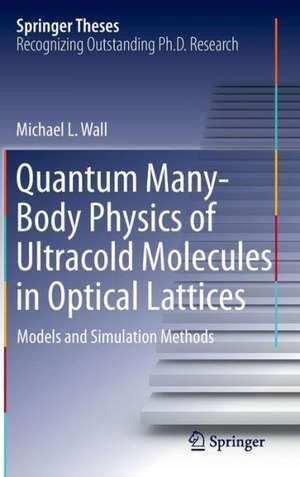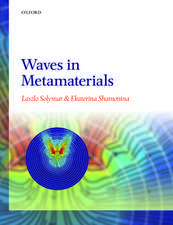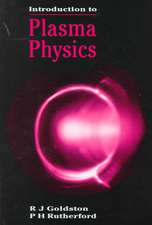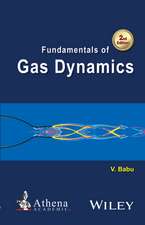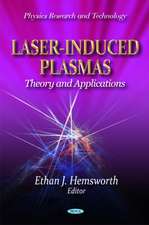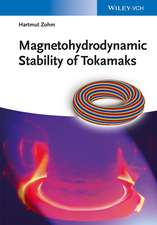Quantum Many-Body Physics of Ultracold Molecules in Optical Lattices: Models and Simulation Methods: Springer Theses
Autor Michael L. Wallen Limba Engleză Hardback – 4 mai 2015
| Toate formatele și edițiile | Preț | Express |
|---|---|---|
| Paperback (1) | 570.05 lei 38-44 zile | |
| Springer International Publishing – 9 oct 2016 | 570.05 lei 38-44 zile | |
| Hardback (1) | 652.17 lei 43-57 zile | |
| Springer International Publishing – 4 mai 2015 | 652.17 lei 43-57 zile |
Din seria Springer Theses
- 18%
 Preț: 997.88 lei
Preț: 997.88 lei -
 Preț: 389.88 lei
Preț: 389.88 lei - 15%
 Preț: 646.94 lei
Preț: 646.94 lei - 18%
 Preț: 943.43 lei
Preț: 943.43 lei -
 Preț: 399.29 lei
Preț: 399.29 lei - 18%
 Preț: 944.99 lei
Preț: 944.99 lei - 15%
 Preț: 636.80 lei
Preț: 636.80 lei - 18%
 Preț: 941.05 lei
Preț: 941.05 lei - 15%
 Preț: 643.16 lei
Preț: 643.16 lei - 15%
 Preț: 642.68 lei
Preț: 642.68 lei - 18%
 Preț: 1103.62 lei
Preț: 1103.62 lei - 20%
 Preț: 558.82 lei
Preț: 558.82 lei - 18%
 Preț: 1112.30 lei
Preț: 1112.30 lei - 18%
 Preț: 944.19 lei
Preț: 944.19 lei - 18%
 Preț: 1109.92 lei
Preț: 1109.92 lei - 18%
 Preț: 1217.27 lei
Preț: 1217.27 lei - 15%
 Preț: 640.06 lei
Preț: 640.06 lei - 15%
 Preț: 636.45 lei
Preț: 636.45 lei - 15%
 Preț: 640.06 lei
Preț: 640.06 lei - 15%
 Preț: 640.88 lei
Preț: 640.88 lei -
 Preț: 389.70 lei
Preț: 389.70 lei - 20%
 Preț: 563.89 lei
Preț: 563.89 lei -
 Preț: 393.35 lei
Preț: 393.35 lei - 15%
 Preț: 637.93 lei
Preț: 637.93 lei - 15%
 Preț: 641.85 lei
Preț: 641.85 lei - 18%
 Preț: 1225.94 lei
Preț: 1225.94 lei - 20%
 Preț: 551.36 lei
Preț: 551.36 lei - 18%
 Preț: 1229.10 lei
Preț: 1229.10 lei - 15%
 Preț: 639.25 lei
Preț: 639.25 lei - 18%
 Preț: 999.45 lei
Preț: 999.45 lei - 15%
 Preț: 640.06 lei
Preț: 640.06 lei - 18%
 Preț: 1220.45 lei
Preț: 1220.45 lei - 18%
 Preț: 1116.26 lei
Preț: 1116.26 lei - 18%
 Preț: 1110.72 lei
Preț: 1110.72 lei - 18%
 Preț: 1000.87 lei
Preț: 1000.87 lei - 18%
 Preț: 891.17 lei
Preț: 891.17 lei - 15%
 Preț: 640.06 lei
Preț: 640.06 lei - 5%
 Preț: 1154.07 lei
Preț: 1154.07 lei - 15%
 Preț: 635.96 lei
Preț: 635.96 lei - 15%
 Preț: 640.88 lei
Preț: 640.88 lei -
 Preț: 387.20 lei
Preț: 387.20 lei - 18%
 Preț: 1109.92 lei
Preț: 1109.92 lei -
 Preț: 385.25 lei
Preț: 385.25 lei -
 Preț: 385.25 lei
Preț: 385.25 lei - 18%
 Preț: 1112.30 lei
Preț: 1112.30 lei - 18%
 Preț: 999.45 lei
Preț: 999.45 lei -
 Preț: 386.99 lei
Preț: 386.99 lei - 15%
 Preț: 637.13 lei
Preț: 637.13 lei - 20%
 Preț: 554.20 lei
Preț: 554.20 lei - 20%
 Preț: 555.57 lei
Preț: 555.57 lei
Preț: 652.17 lei
Preț vechi: 767.26 lei
-15% Nou
Puncte Express: 978
Preț estimativ în valută:
124.79€ • 130.62$ • 103.87£
124.79€ • 130.62$ • 103.87£
Carte tipărită la comandă
Livrare economică 31 martie-14 aprilie
Preluare comenzi: 021 569.72.76
Specificații
ISBN-13: 9783319142517
ISBN-10: 3319142518
Pagini: 510
Ilustrații: XXX, 374 p. 68 illus., 43 illus. in color.
Dimensiuni: 155 x 235 x 22 mm
Greutate: 0.74 kg
Ediția:2015
Editura: Springer International Publishing
Colecția Springer
Seria Springer Theses
Locul publicării:Cham, Switzerland
ISBN-10: 3319142518
Pagini: 510
Ilustrații: XXX, 374 p. 68 illus., 43 illus. in color.
Dimensiuni: 155 x 235 x 22 mm
Greutate: 0.74 kg
Ediția:2015
Editura: Springer International Publishing
Colecția Springer
Seria Springer Theses
Locul publicării:Cham, Switzerland
Public țintă
ResearchCuprins
Part I: Introduction.- General Introduction.- Models for Strongly Correlated Lattice Physics.- Part II: The Molecular Hubbard Hamiltonian.- Emergent Timescales in Entangled Quantum Dynamics of Ultracold Molecules in Optical Lattices.- Hyperfine Molecular Hubbard Hamiltonian.- Part III: The Fermi Resonance Hamiltonian.- Microscopic Model for Feshbach Interacting Fermions in an Optical Lattice with Arbitrary Scattering Length and Resonance Width.- Part IV: Matrix Product States.- Matrix Product States: Foundations.- Out-of-Equilibrium Dynamics with Matrix Product States.- The Infinite Size Variational Matrix Product State Algorithm.- Finite Temperature Matrix Product State Algorithms and Applications.- Part V: Open Source Code and Educational Materials.- Open Source Code Development.- Educational Materials.- Part VI: Conclusions and Appendices.- Conclusions and Suggestions for Future Research.- Appendix A: Documentation for ALPS V2.0 TEBD Code.- Appendix B: Educational Materials: A Gentle Introduction to Time Evolving Block Decimation (TEBD).- Appendix C: Educational Materials: Introduction to MPS Algorithms.
Notă biografică
Michael Wall performed research for his thesis at the Colorado School of Mines, USA. He has since received the Nicholas Metropolis award for outstanding doctoral thesis work in computational physics and is currently a postdoctoral fellow at NIST NRC.
Textul de pe ultima copertă
This thesis investigates ultracold molecules as a resource for novel quantum many-body physics, in particular by utilizing their rich internal structure and strong, long-range dipole-dipole interactions. In addition, numerical methods based on matrix product states are analyzed in detail, and general algorithms for investigating the static and dynamic properties of essentially arbitrary one-dimensional quantum many-body systems are put forth. Finally, this thesis covers open-source implementations of matrix product state algorithms, as well as educational material designed to aid in the use of understanding such methods.
Caracteristici
Nominated by the Colorado School of Mines, USA, as an outstanding Ph.D. thesis Presents a newly invented Molecular Hubbard Hamiltonian (MHH) describing the quantum many-body physics of ultracold molecules in optical lattices Develops new algorithms dealing with dynamics and excited states in systems with long-range interactions Covers open-source implementations of matrix products state algorithms and educational materials to help understand such methods
